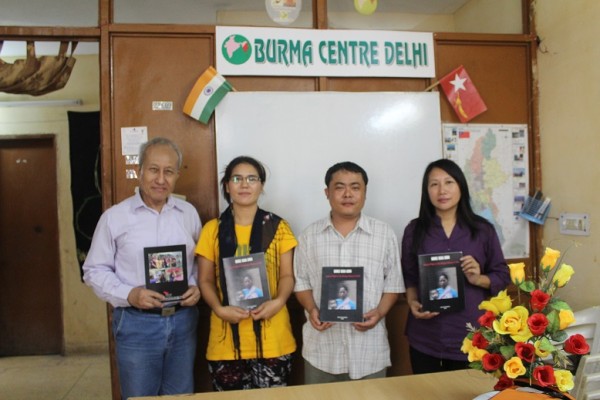The Indian national capital city of New Delhi, which gives shelter to over 8,000 registered Burmese refugees, half of them women and children, remains unsafe for the asylum seekers. A recent report titled ‘Doke Kha Bon’ from the Burma Centre Delhi has reiterated this fact adding that the women refugees, primarily from Chin Province of Burma (also known as Myanmar) continue to lead a vulnerable life in the city.
By Nava J. Thakuria
The Chin refugee women have to struggle for their basic necessities of food, clothing and shelter in the crowded Indian capital city. In addition to this, they battle with constant fear of sexual assault and physical abuses, said Pu Kim, a Burmese exile and founder member of Burma Centre Delhi (BCD).
According to the United Nations High Commissioner for Refugees (UNHCR) office in New Delhi, there are 8,306 Burmese refugees in Delhi out of which 3,924 are women. Persecution due to abuses of the minority ethnic races, minority religions and differing political opinion are cited as the main reasons for their seeking asylum in neighbouring countries.
The most frequent complaints reported to UNHCR in New Delhi include difficulty in communicating with local health and education service providers and inaccessible public hospitals,” said the report, which was released a few months back.
The report, prepared by Pann Nu Foundation (literarily meaning Pink Flower Foundation) in collaboration with BCD included abaout 20 case studies of Chin ethnic minority women. The Chin refugee women, now living in Janakpuri, Vikaspuri, Uttam Nagar, Dabri and Sitapuri localities of west Delhi, bared their hearts during the interactions.
Those women, many of them widows and single mothers, left their country for India seeking a better life. Each one has a sad story related to their life struggles in New Delhi, said Dr Alana Golmei, founder president of Pann Nu Foundation.
The refugee families hailed from various remote areas of Chin Province, and were once dependent on jhum (shifting cultivation). Many of them were just surviving as daily wage earners. But, due to land confiscation practices adopted by the Burmese Army, the villagers gradually lost their livelihood.
Moreover, the continued harassment and torture by the ‘men in uniform’ emerged as another important reason to compel them to leave their native places. Often the women and girls were compelled to serve the military personnel as their porters and labourers. They were allegedly made to serve food, and camp in the jungle with no proper shelter without even knowing when they could return home.
“Needless to say, they all lacked proper education. The interviewees could only read and write in their local Chin dialect. All these women, who are Christians, had no respite from the military who even barged into their houses time and again and demanded food. They said the continued sexual assault by the Burmese Army was their worst nightmare,” asserted Dr Golmei.
But fleeing to India and particularly the capital city has not provided them with solace. Life in Delhi seemingly turns into another nightmare for these women refugees from Burma. In most of their statements, the refugee women revealed that they continued to live a fearful life due to the treatment meted out to them by the Indian locals.
They alleged that they become victims of physical abuse, molestation, sexual assault and discrimination everywhere they go, be it at their rented apartments, workplaces, public spaces or even on the roads and byeways for that matter. To add to their woes is the trouble of finding jobs as they have to comply with the demands of the local employers.
However, due to their acute poverty, the refugee women remain unable to utilize the public health and legal services. They continue to keep mum about sexual assaults due to fear of social stigmatization and shame. Even if some cases are reported to the local police stations, either they are not registered or they are pressured to give up the cases with the promise of some compensation.
“We raise voices for reviewing the present foreign policy by the Indian government taking into consideration the women seeking asylum in the country. We also urge the UNHCR and its implementing partners to set up emergency helplines for women refugees in distress for timely intervention as they are more vulnerable and easy target for sexual assault and other forms of exploitation,” revealed a woman activist.
Though initially Burmese refugees were either political activists or student leaders who were targeted by the then military rulers, now, even after a quasi-democratic regime under the leadership of President Thein Sein came to power at NayPieDaw, the influx to India continues. Now the Burmese people enter India not so much to escape the dictators, but for a better life in what is said to be the largest democracy of the globe.










